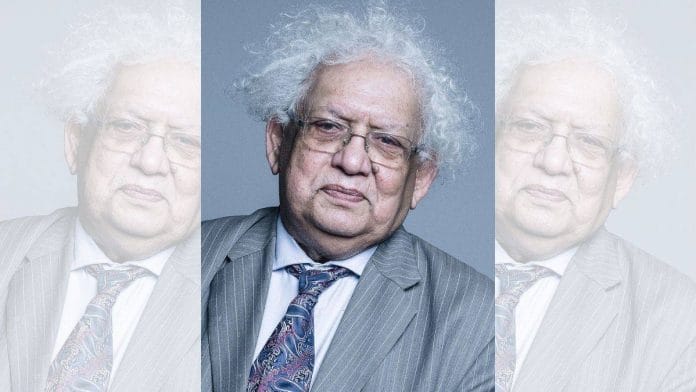July is a rather special month in Meghnad Desai’s life. He was born on 10 July 1940, he married Kishwar on 20 July 2004, and now he has departed from this world on 29 July 2025. We met 60 years ago when he joined the London School of Economics as a lecturer, and I had just finished my master’s degree there. This connection, inspired by our shared surname, was also in July 1965.
In the first few years of his life in London, we met regularly because his home was where I stayed when I came to London from Liverpool or Southampton, where I worked at the universities. What connected us was not just our shared Leftist political inclinations but much more, including our shared interest in films, novels, and Gujarati food. All of this shows up in the vast variety of Meghnad’s actions and achievements in his life.
In 1965, Meghnad joined the LSE as a professor of econometrics. But over time, his interests and his contributions as a professor and as a researcher and writer broadened. His major contribution to improving the LSE was the Development Studies Institute and the Global Governance Centre. He brought me into the centre as a Distinguished Fellow when I retired from the United Nations.
He taught and wrote about Marxian economics, development economics and later also on broader issues about the global economy and political economy. He never lost his interest in Marxist thought, and at the beginning of the new millennium and a little more than a decade after the collapse of communism in Russia and Eastern Europe, he wrote a truly interesting book Marx’s Revenge: The Resurgence of Capitalism and the Death of Statist Socialism. I do believe he thought that, despite the rise of capitalist belief in politics, the socialist goals would be restored in political life.
In 1970, he married Gail Wilson, his first wife, who was connected with the Labour Party. Much of his active political focus was with the Labour Party. Though he did become the Party’s chairperson and shadow cabinet member, his politics perhaps became less hard Leftist beyond his youth. He was independent-minded in his political statements, and he continued as a relatively independent member of the House of Lords, though he formally separated from the Labour Party only in 2020.
Meghnad retained his interest in Indian politics throughout. Talking about it was a part of our arguments in the post-Nehru years for some time after 1965. In more recent years, his interest and contribution became much more intense. He participated in public events in India connected with politics and policy matters, contributed much through his newspaper columns and was even honoured by the Indian Government in 2008 when he was awarded a Padma Bhushan. In 2014, he set up the Gandhi Statue Memorial Trust to raise resources to build a statue of Mahatma Gandhi in Parliament Square in front of the UK Parliament House.
Also read: Lord Meghnad Desai belonged to no camp—and, somehow, to every camp at once
A good life
Meghnad’s interest went much beyond economics and politics. This is reflected in his writing, particularly after his retirement as a full-time LSE Professor in 2003 (though he did continue as an Emeritus Professor for life). He wrote a book about Dilip Kumar, and that is when he met his second wife, Kishwar, who was the editor of the book. His passion for cinema was a long-standing element in his life. During our get-togethers in his house in the late sixties, he relished telling me about Hindi films, showing them when possible. I remember his detailed, scene-by-scene description of the Mehboob Khan film Andaz, which he considered near perfect!
Meghnad was a devoted secularist who formally became an associate of the National Secular Society in Britain. But he did apply his academic strength to studying Hinduism and wrote a couple of books, including one on the Bhagwat Gita, where he argued that some elements there supported social inequality.
What is remarkable in Meghnad’s life is the range of ideas and activities in which he was involved. And for those of us who connected with him personally, what we will miss is his warmth and courtesy, his delightful sense of humour, his sociability which saw him connecting with a vast range of people in India, Britain and elsewhere.
Meghnad had a good life, and Kishwar was a great source of love and support for him. All of us who have been his friends and associates join Kishwar, his three children from his first wife and the rest of the family, not just in mourning his departure, but also in celebrating his life.
Nitin Desai is former CEA GOI & USG UN. Views are personal.
(Edited by Theres Sudeep)






